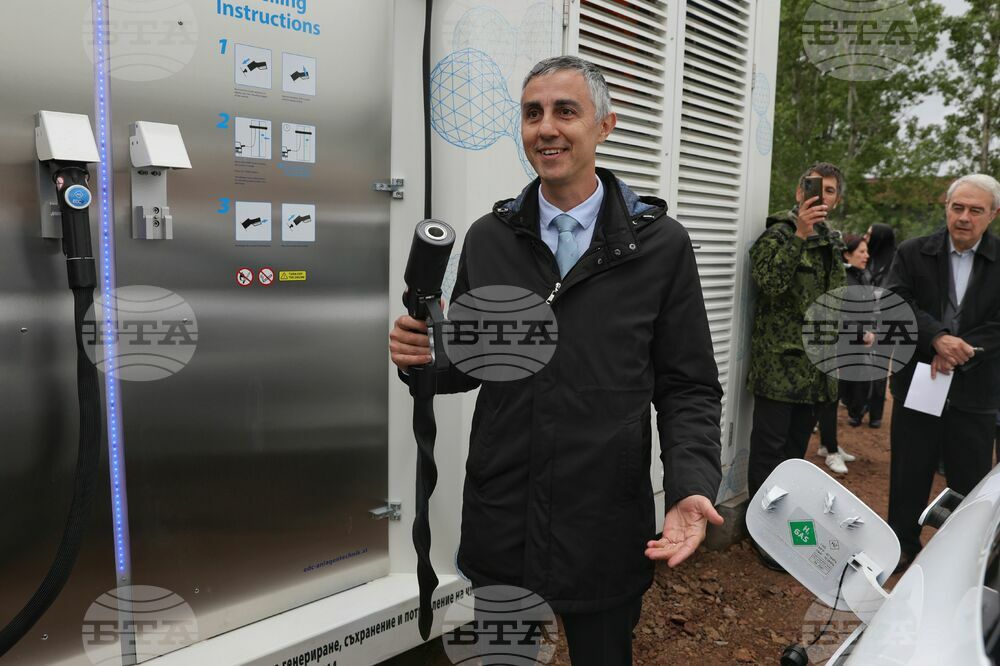site.btaBlagoy Burdin of Energy Systems Institute: Bulgaria's First Hydrogen Charging Station Is Small but Important Step


The first hydrogen charging station, part of the Integrated Energy Systems Field Laboratory of HITMOBIL, is a small but important first step in hydrogen electric mobility in Bulgaria, Assoc. Prof. Blagoy Burdin of the Institute of Electrochemistry and Energy Systems with the Bulgarian Academy of Sciences (IEES-BAS), said in an interview for BTA on Friday.
The first hydrogen charging station in Bulgaria and the region was unveiled at 11 Iskarsko Chaussee Street in Sofia on Friday. The facility, made by the Austrian company EDC-Anlagentechnik, enables charging at the two standard pressures for compressed hydrogen: 350 and 700 bar.
Blagoy Burdin notes that this is the result of at least 5 years of work, during which a lot of expertise has been achieved and from now on the hydrogen charging infrastructure is yet to be built. A European Union regulation obliges all Member States to build hydrogen stations at every 200 km on their main road network as well as at every urban junction by 2030, Burdin stressed.
The advantages of hydrogen cars are that they refuel quickly. In addition, they have a long range that is not affected by weather conditions. “The fuel cell in the process of converting hydrogen and oxygen into electricity gives off heat which in summer is expelled like that of a conventional car, but in winter it is used to heat the cabin”, explained Burdin. Even in winter conditions this consumption, which for a passenger car is 1 kg per 100 km, is not affected much by weather conditions, he added.
In Western Europe and the USA there are hydrogen charging stations, said Burdin. In Western Europe the use of hydrogen is subsidized to make its price equal to that of diesel. "Once this infrastructure is built, reaching the critical minimum of hydrogen charging stations and vehicles, then this price is achievable on an economic basis," Professor said. In his words, it is entirely possible to achieve the EU requirement and build the required number of hydrogen charging stations by 2030, but a collaborative effort is required.
/DS/
Additional
news.modal.image.header
news.modal.image.text
news.modal.download.header
news.modal.download.text
news.modal.header
news.modal.text





















